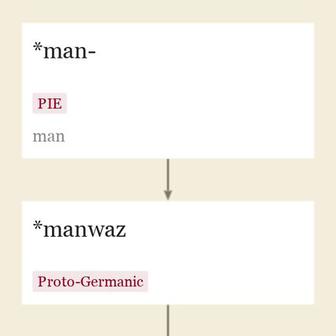serviceman n.
"
Entries linking to serviceman
c. 1100, "
The meaning "
Meanings "
The meaning "
At your service as a phrase of politeness is attested by c. 1600. Service-book, containing forms for public worship, is attested from 1570s. Also in Middle English, service was "

"
Sometimes connected to root *men- (1) "
Specific sense of "
Man also was in Old English as an indefinite pronoun, "
As "
Man-about-town "
So I am as he that seythe, 'Come hyddr John, my man.' [1473]
MANTRAP, a woman's commodity. [Grose, "Dictionary of the Vulgar Tongue," London, 1785]
At the kinges court, my brother, Ech man for himself. [Chaucer, "Knight's Tale," c. 1386]
updated on June 04, 2022